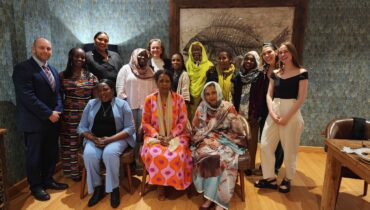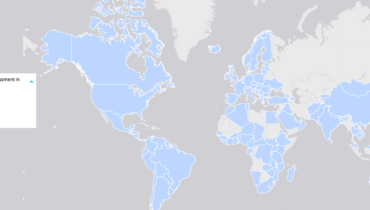Over the years, rape as a tactic of war has been witnessed globally across geographical and cultural divides, including in the Democratic Republic of Congo, Haiti, Bosnia, Liberia and Syria, to name but a few. This scourge continues unabated for various reasons, key among which is a record of insufficient prosecution of sexual violence crimes at the national, regional and international levels. This has resulted in an impunity gap within which sexual violence thrives, is tolerated and even celebrated by warring factions. South Sudan is the latest demonstration of this.
On March 10th, 2016, the United Nations released a report containing the principal findings of a comprehensive assessment conducted by the Office of the United Nations High Commissioner for Human Rights into allegations of violations and abuses of human rights and violations of international humanitarian law in South Sudan since the outbreak of violence in December 2013. The assessment, which builds on and confirms the findings of previous reports, highlights the extent to which sexual violence has been perpetrated in the South Sudan conflict. It finds that from April to September 2015, the UN recorded more than 1,300 reports of rape in just one of South Sudan’s ten states: oil-rich Unity.
“…the quantity of rapes and gang-rapes described in the report must only be a snapshot of the real total. This is one of the most horrendous human rights situations in the world, with massive use of rape as an instrument of terror and weapon of war.”
The report lists the primary perpetrators as groups allied to the Government, though opposition groups and criminal gangs also prey on women. In the report, UN High Commissioner for Human Rights Zeid Ra`ad Al Hussein states, “…the quantity of rapes and gang-rapes described in the report must only be a snapshot of the real total. This is one of the most horrendous human rights situations in the world, with massive use of rape as an instrument of terror and weapon of war.” This situation is dire and shocking. It is, however, not new.
Sexual violence continues to be seen as a ‘normal’ component of war and conflict that comes with the terrain. Survivors, rather than perpetrators, bear the stigma and are often considered collateral damage, in what are seen as ‘isolated incidents’ rather than well-considered and intentional tactics of war. Addressing the issue against this backdrop has proven to be a challenge. Ensuring that perpetrators are prosecuted, even more so. There is dire need to close the impunity gap and give a clear signal that sexual violence in conflict is unacceptable and will not be tolerated. The effective prosecution of sexual violence crimes has never been more critical.
The UN assessment describes sexual and gender-based violence as a hallmark of the South Sudan conflict in 2014, which continued unabated in 2015, particularly in Unity state, where the Government forces and affiliated militia were primarily responsible. In South Sudan conflict, the use of rape has, therefore, become normalized. Women and girls are also considered commodities and seized along with civilian property as the soldiers move through the villages. According to the UN report, credible sources indicate that groups allied to the Government are being allowed to rape women in lieu of wages. This is a reflection of the ever-evolving tactics of perpetrators of sexual violence in conflict, and the absolute horror that women and girls continue to endure. It is clear that global progress in prosecuting sexual violence crimes is not as rapid.
UN Security Council Resolution 2106 (2013) provides that “… the consistent and rigorous prosecution of sexual violence crimes as well as national ownership and responsibility in addressing the root causes of sexual violence in armed conflict are central to deterrence and prevention as is challenging the myths that sexual violence in armed conflict is a cultural phenomenon or an inevitable consequence of war or a lesser crime.” UN Security Council Resolution 1820 (2008) calls upon Member States to comply with their obligations for prosecuting persons responsible for rape and other forms of sexual violence. However, despite the existence of a robust international normative framework to address the issue, implementation remains a great challenge and progress is slow.
“There is dire need to close the impunity gap and give a clear signal that sexual violence in conflict is unacceptable and will not be tolerated. The effective prosecution of sexual violence crimes has never been more critical.”
Until three decades ago, sexual violence in war was largely invisible, a point illustrated by the initial failure to prosecute sexual violence in the earlier ad hoc international criminal tribunals. A welcome development has, therefore, been the inclusion and prosecution of gender crimes in the more recent courts and tribunals. In this regard, the International Criminal Court (ICC) has the mandate and can lead the way by enhancing the prosecution of sexual violence as a war crime, a crime against humanity and a form of genocide in its ongoing cases. The ICC must strengthen its policies and procedures for the investigation and prosecution of sexual violence so that perpetrators are held accountable under international criminal law. The Court’s 2014 Policy Paper on Gender and Sexual Violence Crimes indicates some progress in this area; if effectively implemented, it will go a long way in influencing the manner in which sexual violence is addressed under international criminal law.
At the national level, such as in the case of South Sudan – where the justice system has been ravaged by the conflict – the immediate steps as recommended by the report include taking effective action to eliminate sexual and gender-based violence, including through the implementation of a gender-sensitive protection and reporting mechanism, and providing redress, rehabilitation services and access to justice for victims. Future transitional justice mechanisms in the country should incorporate and address gender justice.
Prosecution is by no means the sole solution to the scourge of sexual violence in conflict. It is, however, a critical part of addressing it. Long-standing gender inequality and the normalization of various forms of violence against women during peacetime must also be addressed, in addition to dealing with the broader implications that these have on the social fabric. As Zainab Bangura, the UN Special Representative on Sexual Violence in Conflict, notes, “…rape in war is not inevitable, rather it is a reflection of the subordinate status of women in society. Wartime rape will stop when the status of women changes, and the shame lands on the perpetrators, not the victims.” The effective prosecution of sexual violence crimes in conflict at the international, regional and national levels can go a long way in shifting this shame in all conflicts, including South Sudan.
About the Author
Vicky Karimi is a 2015 LLM graduate of the Georgetown Law Center under the Leadership and Advocacy for Women in Africa Program. She is a Peace and Security Fellow of the Africa Leadership Centre/King’s College, London. She works on security and justice issues in Africa.


